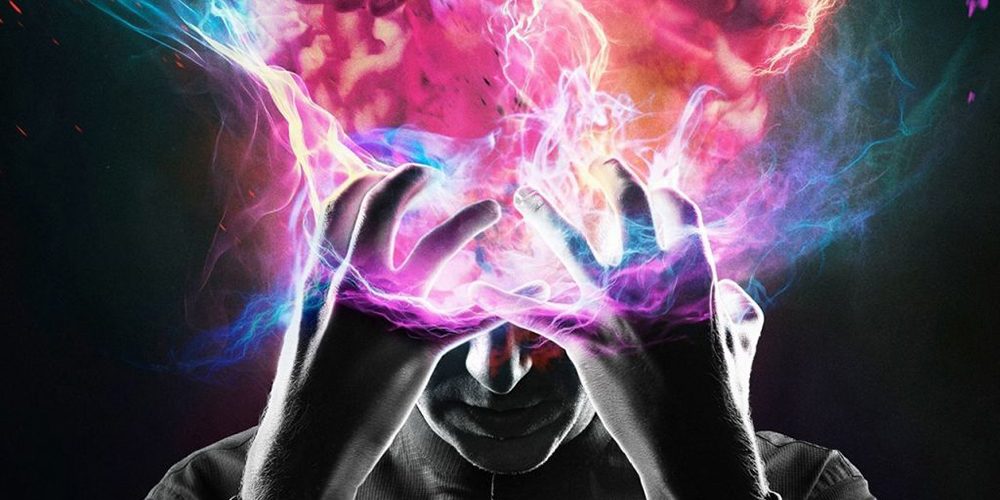“Madness is something rare in individuals—but in groups, parties, peoples, and ages, it is the rule.” ― Friedrich Nietzsche, Beyond Good and Evil
***
FX’s Legion, from Fargo showrunner Noah Hawley, is not a typical superhero story. It has more in common with the works of David Lynch, early Richard Kelly (Donnie Darko, Southland Tales), and films about mental illness like Girl, Interrupted and Fight Club than it does its source material pulled from the pages of Marvel’s X-Men. It’s not easily digestible for either the crowd burnt out on the superhero genre or the audience that wants more straightforward adaptations of superhero comics, but it does have a lot to say about madness and confusion–both the individual and the collective varieties.
The first season saw David Haller (Dan Stevens), the son of Charles Xavier, wrestling with questions surrounding his identity: is he insane or is he a mutant? The story (whose plot summary could fill an entire article and still leave elements out and questions unanswered) took David from a psychiatric hospital to Division III, a shady government run group tasked with the capture and study of mutants, to Summerland, a mutant haven led by Melanie Bird (Jean Smart). Along the way he gets wrapped up with another mutant Syd Barrett (Rachel Keller) whose abilities resemble those of the X-Man Rogue, and encounters Lenny (Aubrey Plaza) who would haunt him via visions throughout the season. Other recurring characters include Ptonomy Wallace (Jeremie Harris), who helps David unpack his memories; mutant scientist Cary Loudermilk (Bill Irwin) who hosts another character Kerry Loudermilk (Amber Midthunder); Clark DeBassy (Hamish Linklater) a Division III operative; and Oliver Bird (Jemaine Clement), Melanie Bird’s husband who has been trapped in the astral plane for the last 20 years and winds up at the end of the season as the host of the Shadow King, the series’ primary antagonist.
In the comics, David Haller, aka Legion, suffers from dissociative identity disorder, commonly referred to as multiple personality disorder, whose alternate personalities each control a different mutant superpower. Here however, Haller suffers from schizophrenia, a mental disorder that often leads to hallucinations, delusions, and disorganized thinking. Showrunner Hawley deftly grounds Haller as an unreliable narrator, bringing that feeling of schizophrenic confusion to the audience. From scene to scene it is often hard to tell if we are watching a hallucination, a flashback, a vision of the future, or the objective present. And episode 1 of season 2 drops the viewer right back into a labyrinthian puzzle–even if you thought you understood where things stood at the end of the first season.
In fact, it begins with a voice over from Jon Hamm, a new addition this season, asking viewers to visualize a maze, a maze created by one’s own mind. Hamm’s narrator returns throughout the episode at intervals with brief stories that don’t have any direct link to the episode’s narrative but serve as parables that help contextualize the narrative. He relates the story of Zhuang Zhou, “who fell asleep one day and dreamed he was a butterfly. For hours, he fluttered in the warm winter sun until he no longer remembered he was Zhuang Zhou. Suddenly he woke, and he was Zhuang Zhou again. But in that moment, he didn’t know: Was he Zhuang Zhou who had dreamed he was a butterfly, or a butterfly who was dreaming he’s Zhuang Zhou?” He also tells the story of a man who becomes convinced his leg is not part of himself, and the tale of two chicks freshly hatched from their eggs, one healthy and one deformed, covered in an oily black goo.
The great filmmaker Akira Kurosawa once quipped, “In a mad world, only the mad are sane.” Legion season 2 seems to be shaping up as an exploration of that idea—although in some respects, Hawley has been exploring this theme since at least his work on Fargo. Hawley refers to the narrative interludes as “educational segments” and they help transition the show from a look at the madness of an individual to a look at the madness of the world. He goes on:
If the first season was about looking at individual mental illness—whether David had schizophrenia or he had these abilities—then the second year is about the greater idea of mental illness. What if the world has gone crazy, and he’s the sane one? I was interested in the idea of our shared reality being a choice that we make. Sometimes societies go a little bit crazy. How does that happen? Part of exploring that involves inventing these educational segments about trying to explain and visualize what is a delusion: By saying delusions are ideas, and ideas are like an egg, and some ideas are healthy while others are unhealthy.
Legion, for all its abstract storytelling, seems grounded in the present age. If women sporting mustaches and auto-tuned, computerized voices seem confusing, or if a battle between good and evil being held as an epic dance-off in a club strains your suspension of disbelief, is it all any more bewildering than the idea that mass shootings are staged? Or watching dozens of news anchors deliver the same scripted statements across the country?
Legion seems to be exploring the concept that even the most absurd—and, indeed, dangerous—ideas can take real shape, have real consequences, and become normalized and defended through means of logic not just on a personal level, but on a societal one. And asks how we can navigate through a world in which the culture doesn’t know what to believe and can’t differentiate between hallucinations, delusions, and reality. In a hyper stimulated world where it is hard to distinguish between the knowledgeable and the ignorant, the wise and the foolish, it’s a well-executed dive headlong into that very question.









